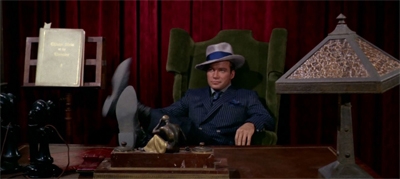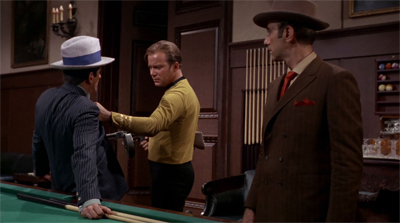The podcast that I co-host, The 250, continued our belated Summer of Scorsese last week with a look at Goodfellas. This week, we’re looking at Casino. It is a fun and broad discussion that is well worth your time, but it spurred some of my own thoughts about Martin Scorsese’s 1995 gangster classic.
When Casino was released, it experienced something of a minor backlash.
Part of this backlash was motivated by the film’s perceived similarities to Goodfellas – Scorsese had made another soundtrack-heavy period-piece mob movie starring both Robert DeNiro and Joe Pesci, adapted from the work of Nicholas Pileggi. To a certain extent, this was fair. There were legitimate concerns that Scorsese was simply repeating himself, and that any comparisons to Goodfellas did not flatter Casino.

These problems were compounded by content. At time of release, Casino was Scorsese’s longest movie, clocking in at just shy of three hours. That is a lot of mobster movie, particularly if that movie felt in anyway derivative of the appreciably shorter Goodfellas. There were also rumblings of the movie’s brutality and violence, which was seen as being particularly excessive and graphic. These complaints circulated even before Casino hit cinemas. Peter Travers summarised the mood, “Even before Casino opened, the black cloud of letdown hung over Scorsese’s epic tale.”
However, time has been kind to Casino. Although the film undoubtedly still exists in the shadow of Goodfellas, it has come to be recognised as one of the great crime films and to merit some appreciation on its own terms. Casino is a fascinating piece of work. It is bold and ambitious, epic and sweeping. However, what is most striking about Casino is not how it compares to Goodfellas, but how it contrasts. The differences are instructive.

Casino is often categorised as a mob movie, and it is definitely that. It is a story about gangsters and organised crime. However, it is also a western. It is perhaps the closest that Scorsese has come to making a traditional western in his entire cinematography. More than that, while Goodfellas is anchored in the character of Henry Hill, Casino lacks a similar hook. Both Sam and Nicky are much more oblique characters than Henry; Sam is less proactive, and Nicky is much more brutal. They are harder to invest in, tougher to root for.
However, this allows Casino to take a much wider view of this world and the people that inhabit it. Casino is arguably a religious parable, a story about mankind’s destruction of paradise and the inevitable exile that followed. In that sense, Casino feels like more of a bridge between Goodfellas and Scorsese’s more overtly religious-tinged parables like Bringing Out the Dead or Silence than it initially seemed. This is a story about heaven on earth, and the fallen sinful human beings who turn that heaven into a nightmarish hell.

Continue reading →
Filed under: On Second Thought | Tagged: america, belief, capitalism, casino, faith, frontier, gangsters, martin scorsese, mythology, religion, robert deniro, western | 1 Comment »

































